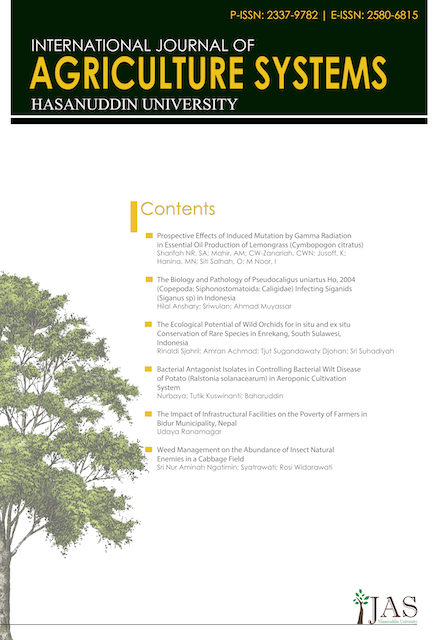Abstract
Palm oil mill effluent (POME) is applied on cultivated farmlands at various stages by many farmers in
southeastern Nigeria with many reporting that it helps to improve crop yield and productivity despite no
availability of data to support their claims. This study was therefore designed to investigate the impact of
POME on soil physicochemical parameters and soil enzyme activities in soil samples from POME irrigated
farmlands. In this study, top and subsoil samples from control farmland unirrigated with POME, dumpsites
and 10 m away from POME dumpsites in six different farmlands irrigated with POME labelled A – F were
investigated using standard analytical procedures. The results of physicochemical properties of the soils
including nitrogen, phosphorus, organic carbon, organic matter, cation exchange capacity and exchangeable
cations indicated significant (P<0.05) in topsoil and sub-soils containing POME when compared with their
corresponding control1 soils. The lipase activities of topsoil from dumpsites A-E and subsoil 10m away from
dumpsite C indicated a significant increase (P<0.05) relative to the corresponding control soils. The effluents
caused a significant (P<0.05) decrease in the dehydrogenase and catalase activities of top-soils and sub-soils
from each of the dumpsites and 10m away from respective dumpsites when compared with their respective
control soils. The findings of this study revealed that the application of POME on soil increases the contents
of soil organic carbon, organic matter, exchangeable cations, and cation exchange capacity interfere with
enzyme activities.

This work is licensed under a Creative Commons Attribution-NonCommercial-ShareAlike 4.0 International License.
Copyright (c) 2025 International Journal of Agriculture System


